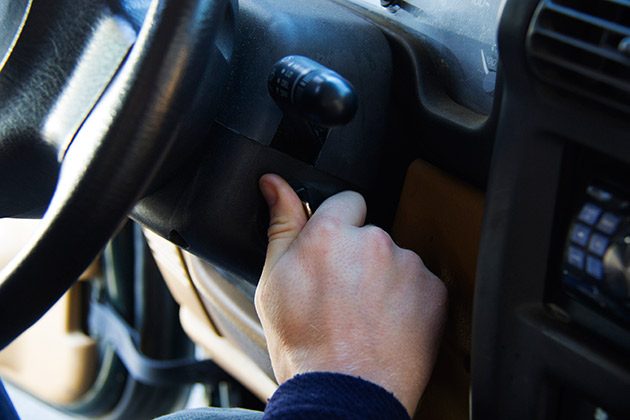Picture it. You clamber into your car after a few drinks with your friend. As you turn the key in the ignition and put your hands on the steering wheel, you close your eyes and take a deep breath. You’re ok to drive, right? You’ve only had a few beers.
You pull out of the bar parking lot and start down the road. All of a sudden you see the blue and red flashing lights of a police car in your rear view mirror. Your stomach sinks. Your spine stiffens and your hair stands on end as you listen to the distinctive high-pitched sound of the police siren. You’re getting pulled over.
You’re being pulled over and you’ve been drinking. It’s a dangerous combination. A double-whammy. Panic ensues.
If you can keep yourself together and remember these three tips, you can protect yourself. Reading and internalizing these tips can help you limit the amount of evidence law enforcement could potentially use to charge you with a DUI.
The golden rule for interacting with law enforcement is – the less you do and say, the better. It’s not illegal to say and do nothing. It is your right not to be cooperative. This may get you arrested, but in the end you will have eliminated most of the ways that law enforcement officers gather against you. If you’re facing a DUI arrest, your silence and noncompliance will help you prevail on avoiding criminal charges.
Now, on to the specific tips. When you’re pulled over and have been drinking…
1. Immediately roll down your windows and get your license, registration, and proof of insurance out.
You’ll have to roll your window down anyway. Rolling down your window and the other windows in the car immediately will help dissipate any alcohol odor inside your vehicle. By the time the officer walks up to your window, you’ll be smelling less guilty.
An officer will always ask for your driver’s license, registration, and proof of insurance, as these are the legal things you must provide upon request. You are not legally required to provide anything else.
2. Do not say anything other than ‘yes’ or ‘no’ if asked a direct question.
After handing your license, registration, and proof of insurance to the law enforcement officer, look directly forward at your windshield. Do not look at the officer. There is no reason to look at the officer, other than to give them the chance to see if your eyes are bloodshot and red, indicators of alcohol intoxication and evidence against you.
When asked a direct question, respond with a polite but brief ‘yes’ or ‘no’. The less you speak, the less the officer can report that you may have slurred speech. It also becomes more difficult for the officer to detect the odor of alcohol on your breath.
The officer will try very aggressively to get you to speak to and look at them. If you can resist, you are severely limiting their ability to gather evidence against you. Again, all they can legally ask for is your license, registration, and insurance. They can’t demand that you have a conversation with them.
3. Refuse to do anything.
If they want you to perform Field Sobriety Testing, refuse. Don’t do any of it. Doing anything beyond handing the officer your license and registration just adds to the evidence against you.
Don’t think you can beat DUI testing. You can’t. You can, however, refuse to perform a Field Sobriety Test or take a breath test. Stick to your guns.
This may mean that they slap the cuffs on you right then and there, placing you under arrest. That’s certainly a frightening and embarrassing situation, but in the long run it’s better than a DUI charge.
If you simply say nothing, and allow yourself to be arrested or just let go, you have created a scenario where the officer does not have the typical evidence used to persecute a DUI case.
Sometimes officers will let you go. They know they don’t have any evidence against you and see that you’re unwilling to cooperate. Other times, an officer may become so frustrated with you that they charge you out of that frustration. That is OK. If you are charged and have followed these three steps, it will be very difficult for a court of law to prosecute you. The prosecutor will likely cut you a deal.
Have any questions about behavior to avoid when you’re facing a DUI arrest? Leave them in the comments.

Marty is a former criminal prosecutor in the Cascade County Attorney’s Office and now uses that experience to defend those accused of crimes. A University of Montana School of Law graduate, Marty focuses his practice on personal injury and criminal defense and is a premier DUI defense attorney. He is also well versed in the insurance claims industry and has negotiated significant settlements with nearly every major insurance company.

